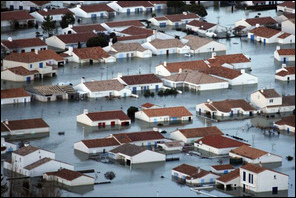On February 5, a trial court in British Columbia awarded $50,000 CAD (roughly $40,000 USD in current exchange rates) to distinguished climate scientist Dr. Andrew Weaver, finding that a collection of articles had defamed him.[1] The judgment is controlling authority only within British Columbia, but it is still significant: the […]
Each month, Arnold & Porter and the Sabin Center for Climate Change Law collect and summarize developments in climate-related litigation, which we also add to our U.S. and non-U.S. climate litigation charts. If you know of any cases we have missed, please email us at columbiaclimate at gmail dot com. Here are the additions […]
The date is approaching for EPA to finalize its rules for controlling carbon dioxide emissions from existing power plants, and states are contemplating their responses to those rules. A number of commentators have recommended that states “just say no” to EPA and refuse to prepare state plans complying with the […]
Newly posted summer internship positions Law Students The Sabin Center for Climate Change Law is hiring for its 2015 summer internship program. Legal interns at SCCCL work with Center Director, Professor Michael Gerrard, Executive Director Michael Burger, and current fellows on a wide range of cutting-edge climate change, energy, and […]
The first comprehensive survey ever conducted of climate change litigation outside the United States has been released by Columbia Law School’s Sabin Center for Climate Change Law. It finds that there is far more climate litigation in the United States than in the rest of the world combined, and that […]
Jessica Anne Wentz Associate Director and Postdoctoral Fellow In the early morning of February 28, 2010, storm Xynthia hit the French Atlantic coast, overwhelming coastal defenses and flooding over 50,000 hectares of land. The storm caused over one billion euros of damage and 47 fatalities in the Vendée Department of […]
Mark Bond Columbia Law School, Class of 2015 In 2011, governments around the world committed to deliver a new, universal, and binding greenhouse gas (GHG) reduction agreement for the period beyond 2020 by 2015. This agreement is to be adopted this December at the twenty-first Conference of the Parties to […]
The Sabin Center has published “Electricity Sector Adaptation to Heat Waves” by Sofia Aivalioti, a student in the Joint European Master in Environmental Studies – Cities & Sustainability program and a Visiting Scholar at the Center last fall. The white paper takes an up-close look at the impacts of extreme heat events on […]




